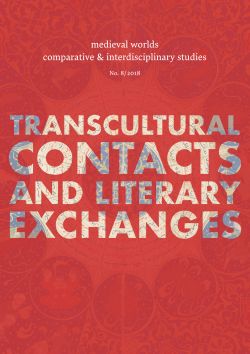Christian Gastgeber
S. 42 - 65
doi:
10.1553/medievalworlds_no8_2018s42
Verlag der Österreichischen Akademie der Wissenschaften
doi:
10.1553/medievalworlds_no8_2018s42
Abstract:
The article deals with a unique document from the early Carolingian period, a letter from Pope Paul I sent to King Pippin III. An appendix contains a list of books with some Greek works. In this paper the text is critically re-examined from the perspective of the Greek manuscript culture and the intention of this »cultural supplement« to the Frankish court. The text attracted great interest from researchers because the book list also includes works by Aristotle and Ps.Dionysius Areopagite. In recent academic discussions the list was interpreted on the basis of the edition in the Monumenta Germaniae Historica, which claims to be the first real critical edition of the original text in the codex unicus, housed at the Austrian National Library. Some scholars became the victims of earlier editions, which present the text as it was amended in the manuscript itself by the late humanist scholar Sebastian Tengnagel (1563-1636). However, the MGH edition also edits the list as interpreted by the editor (thus presenting an unknown geometry by Dionysius Areopagite), not as the manuscript transmits the text. The grouping of the items in the list is fundamental for interpreting the purpose for which these books were delivered. Hence, this paper goes back to the roots and starts from the manuscript and its punctuation. From a linguistic approach, the Areopagite question appears in a new light, and an Areopagite manuscript, sent to the Franks in around 758 AD – about 70 years before the famous Greek manuscript was handed over by envoys from the Byzantine Emperor – , seems to be responsible for the mistake in the textual transmission. The paper also takes up the question of the quantity of books: in research to date the list was regarded as a small library, but the Greek books listed are rather a comprehensive codex. Finally, the character of the books as analysed here clearly links to a basic introduction to Greek and provokes the question of whether further witnesses of Greek knowledge in the early Carolingian period exist.
King Pippin III, Pope Paul I, Greek language, Greek manuscripts, Codex Carolinus, Aristotle, Ps.Dionysius Areopagite, Schoolbooks, Greek letters
Published Online:
2018/11/30 08:57:14
Object Identifier:
0xc1aa5576 0x003a16e2
Rights:All rights reserved.For questions regarding copyright and copies please contact us by email.
medieval worlds provides a forum for comparative, interdisciplinary and transcultural studies of the Middle Ages. Its aim is to overcome disciplinary boundaries, regional limits and national research traditions in Medieval Studies, to open up new spaces for discussion, and to help developing global perspectives. We focus on the period from c. 400 to 1500 CE but do not stick to rigid periodization.
medieval worlds is open to submissions of broadly comparative studies and matters of global interest, whether in single articles, companion papers, smaller clusters, or special issues on a subject of global/comparative history. We particularly invite studies of wide-ranging connectivity or comparison between different world regions.
Apart from research articles, medieval worlds publishes ongoing debates and project and conference reports on comparative medieval research.
Editor’s Preface
Walter Pohl and Ingrid Hartl
World Literature is Trans-Imperial: A Medieval and a Modern Approach
Christian Høgel
The Global Eminent Life: Sixth-Century Collected Biographies from Gregory of Tours to Huijiao of Jiaxiang Temple
James T. Palmer
The Aristotle of Pippin III. Greek Books Sent to the Frankish Court (ca. 758 AD)
Christian Gastgeber
Biblical Elements and the ‘Other’ in the Chronicon regum Legionensium
Patrick S. Marschner
“The messenger is the place of a man’s judgment”: Diplomacy between Emperors and Caliphs in the Tenth Century
Courtney Luckhardt
The Geopolitics on the Silk Road: Resurveying the Relationship of the Western Türks with Byzantium through Their Diplomatic Communications
Li Qiang and Stefanos Kordosis
Project Reports
Dynamics in Buddhist Transfer in Eastern Central Asia 6th-14th Centuries: A Project Report
BuddhistRoad Team
Mobility, Empire and Cross-Cultural Contacts in Mongol Eurasia (MONGOL)
Michal Biran
Greek into Arabic. Philosophical Concepts and Linguistic Bridges
Cristina D’Ancona, Gerhard Endress and Andrea Bozzi
Writing the History of Aristotelian Logic During the Long Ninth Century. Some Remarks and Preliminary Results
Christophe Erismann
The THESIS Project
Monica Brinzei
Origins of the Vernacular Mode: Medieval Theology, Politics and Religious Identities
Pavlína Rychterová




 Home
Home Print
Print
 References
References
 Share
Share
